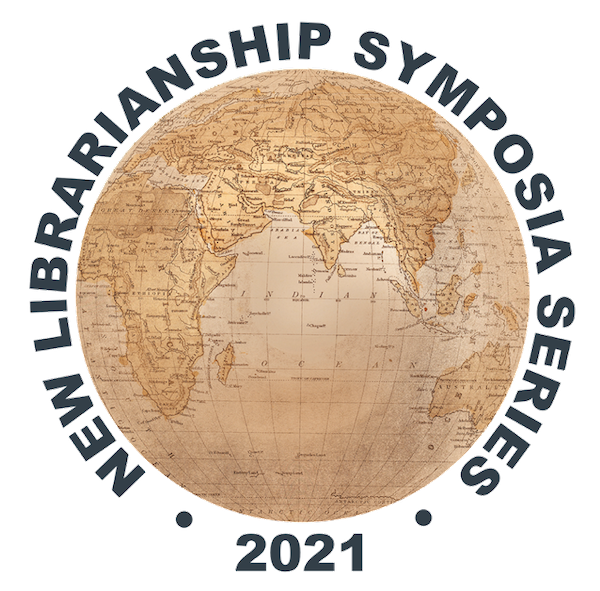Submission Type
Paper Abstract Submission
Symposium Selection
Equity, diversity, and inclusion
Keywords
LGBTQAI+ health care, humanities and medicine, cultural competency, libraries & social justice
Abstract
LGBTQAI+ communities have faced discrimination in health care due to inadequate medical care, unfair health insurance policies and entrenched prejudice. To remedy this situation, many medical schools and hospitals have created co-curricular interventions, such as events and programs and new staff positions to address this issue. This librarian-led collaboration challenges and advances the discussion on comprehensive LGBTQAI+ health care and promotes deeper understanding of LGBTQAI+ communities by transforming health professionals’ cultural competency and compassionate health care practices towards equity and social justice.
This project – Babs Siperstein Humanities and Medicine Series - was born when the faculty affiliated with the Gender Center of New Jersey, at the Robert Wood Johnson Medical School, Rutgers University approached the libraries seeking information about the LGBTQAI+ issues from non-medical fields, specifically from the fields of humanities and social sciences. They believed that broadening their understanding of the LGBTQAI+ patients would build capacity and their knowledge base, thus increasing their ability to provide a more comprehensive health care. Utilizing vast networks of humanities and social science scholars and activists on and off campus, the librarians and the health care providers created a diverse community. Members include humanities and social sciences scholars from different disciplinary backgrounds, LGBTQAI+ individuals their family members, activists, medical students, graduate and undergraduate students, and other stakeholders. Our focus is intersectional challenging generic claims of LGBTQAI+ individuals and taking into consideration their diverse experiences and effects of race, class, ethnicity, religion, age, and ability/disability on individual life trajectories. All participants engage in interactive learning to develop their understanding of LGBTQAI+ communities from the presenters, as well as from other participants’ experiences to acquire new perspectives. This inclusive and participatory practice helps develop cultural and social competency and practice of inclusion of health professionals resulting in their increased capacity for providing sensible and holistic health care service delivery for a diverse gender non-conforming community. It is an example of libraries creating opportunities to increase health professionals’ capacity for a more expansive, humane and compassionate health care. This collaboration opens new perspectives by bringing different voices to the table and resonates with the ACRL’s Framework for Information Literacy for Higher Education.
* The seminar honors Barbra (Babs) Casbar Siperstein (1942-2019), the New Jersey transgender activist and a former seminar participant. She worked tirelessly for the passage of the Babs Siperstein Law, P.L. 2018, c. 58 that removed the requirement that a person must submit documentation of gender reassignment surgery in order to change sex designation on New Jersey vital records.
Previous Versions
Libraries advancing social justice and improving the health care of the LGBTQAI+ communities
LGBTQAI+ communities have faced discrimination in health care due to inadequate medical care, unfair health insurance policies and entrenched prejudice. To remedy this situation, many medical schools and hospitals have created co-curricular interventions, such as events and programs and new staff positions to address this issue. This librarian-led collaboration challenges and advances the discussion on comprehensive LGBTQAI+ health care and promotes deeper understanding of LGBTQAI+ communities by transforming health professionals’ cultural competency and compassionate health care practices towards equity and social justice.
This project – Babs Siperstein Humanities and Medicine Series - was born when the faculty affiliated with the Gender Center of New Jersey, at the Robert Wood Johnson Medical School, Rutgers University approached the libraries seeking information about the LGBTQAI+ issues from non-medical fields, specifically from the fields of humanities and social sciences. They believed that broadening their understanding of the LGBTQAI+ patients would build capacity and their knowledge base, thus increasing their ability to provide a more comprehensive health care. Utilizing vast networks of humanities and social science scholars and activists on and off campus, the librarians and the health care providers created a diverse community. Members include humanities and social sciences scholars from different disciplinary backgrounds, LGBTQAI+ individuals their family members, activists, medical students, graduate and undergraduate students, and other stakeholders. Our focus is intersectional challenging generic claims of LGBTQAI+ individuals and taking into consideration their diverse experiences and effects of race, class, ethnicity, religion, age, and ability/disability on individual life trajectories. All participants engage in interactive learning to develop their understanding of LGBTQAI+ communities from the presenters, as well as from other participants’ experiences to acquire new perspectives. This inclusive and participatory practice helps develop cultural and social competency and practice of inclusion of health professionals resulting in their increased capacity for providing sensible and holistic health care service delivery for a diverse gender non-conforming community. It is an example of libraries creating opportunities to increase health professionals’ capacity for a more expansive, humane and compassionate health care. This collaboration opens new perspectives by bringing different voices to the table and resonates with the ACRL’s Framework for Information Literacy for Higher Education.
* The seminar honors Barbra (Babs) Casbar Siperstein (1942-2019), the New Jersey transgender activist and a former seminar participant. She worked tirelessly for the passage of the Babs Siperstein Law, P.L. 2018, c. 58 that removed the requirement that a person must submit documentation of gender reassignment surgery in order to change sex designation on New Jersey vital records.


